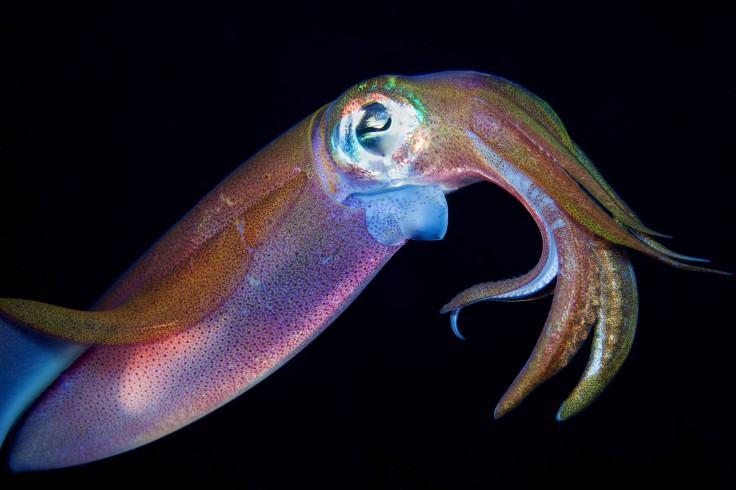Why Does Pain Make Us Irritable? Injured Squid, Sea Bass Can Tell Us

Being in pain can put you in a bad mood for the rest of the day, but why? Believe it or not the answer is more than simply "because it hurts," and has to do with a biological survival mechanism. Scientists were able to discover the link between pain and irritability by observing a strange group of sea creatures: Some injured squids and one hungry sea bass.
It may sound cruel but the new study on pain and irritation involved studying snipping the tentacles off squids and then seeing how they reacted in life threatening situations. The Los Angeles Times assured that it is a rather minor injury to the squid, and not enough to affect its ability to swim or maneuver in the water. After injuring the squids, the researchers then placed them in a tank with one of their natural enemies, the sea bass. Researchers repeated this again, this time using non-injured squids.
Researchers observed that the behavior of the injured squids differed greatly from that of the non-injured squids in the same situations when both were placed in the same situations. “The injured squid were really touchy. They responded more strongly to visual stimulus than normal squid," Robyn Crook, the lead researcher on the study told The Times. It seemed that when the normal squids merely kept an eye out for danger, the injured squids were fully prepared to fight, as observed by their change in colorings. The threatened squids also released ink.
In another experiment the scientists anesthetized the squids before snipping off their arms to prevent them from feeling any pain whatsoever. In contrast, although they were more attentive to the sea bass than the non-injured squids, they were also more likely to be eaten by the sea bass than the non-anesthetized squids.
The study proves that the hyper-vigilance that we associate with being in pain actually serves a biological purpose. Predators evolved to seek out the most vulnerable prey, therefore it seems that prey evolved to be super attentive in times of injury to counteract this. “It is not an accident we feel really awful after we are injured. Those sensory changes are really important for increasing survival under conditions where an animal is extremely vulnerable,” Edgar T. Walers, who studies pain and neural plasticity at the University of Texas Medical School at Houston, told The Times. This hypersensitivity explains why everything seems to bother us when we are in pain; sounds are too loud, lights are too bright, we don’t want anything touching our skin.
Source: Crook R, Dickson K, Hanlon R, et al. Nociceptive Sensitization Reduces Predation Risk. Current Biology. 2014



























